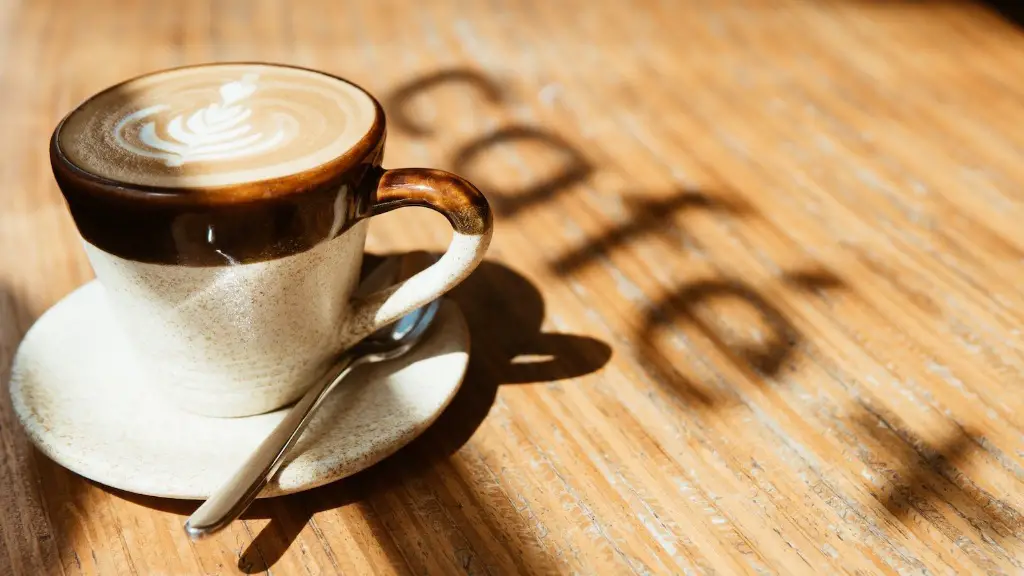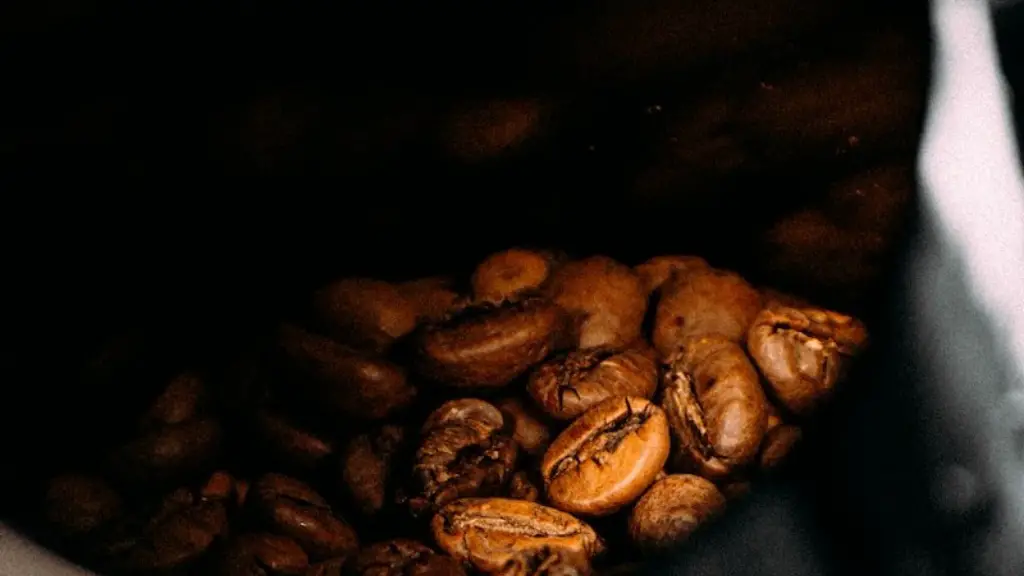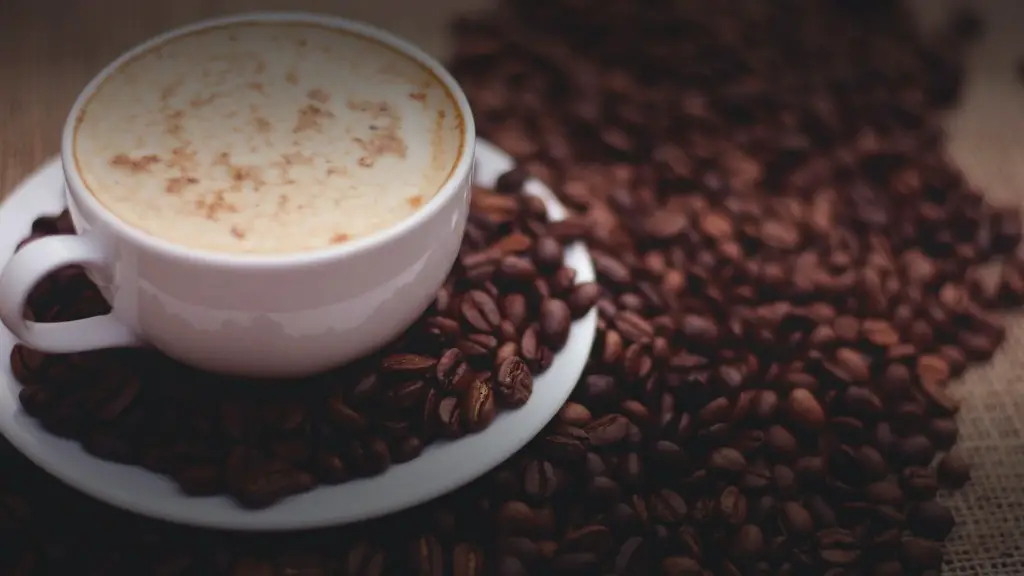Many people may have experienced that feeling of being a little weird after drinking coffee, as if something just isn’t quite right. It could be described as a sudden change in feelings, such as a sense of unease, feeling spaced out, or being overly excited. This phenomenon is sometimes referred to as a ‘coffee high’, due to the various physical and psychological effects that consuming an average amount of caffeine can have on the body. As the world’s most popular psychoactive drug, caffeine can cause a number of different reactions, depending on the individual and the amount consumed. It is important to understand why this might happen and what can be done to reduce the impact of caffeine on the body.
According to experts, caffeine causes a range of physical and mental changes in the body. In general, caffeine can stimulate the central nervous system and raise energy levels. This can result in increased alertness, improved focus, and a general feeling of being ‘sped up’. At the same time, it can also lead to increased anxiety, thinning of Sclerema, insomnia and palpitations. In the short term, these can induce feelings of unease, especially when too much caffeine has been consumed. When caffeine interacts with the over-sensitive amygdala, the brain’s ‘fear centre’, it can create feelings of fear and unease in the body.
Moreover, some people can be more sensitive to caffeine than others and therefore more prone to experiencing the effects of a ‘coffee high’. These people may be more sensitive to the stimulating effects of caffeine, which can lead to jitters and an increase in overall nerves or anxiety. It is important to be aware of this, as there can be long-term consequences associated with large and regular doses of caffeine. This can include altered emotions, concentration issues, and sleep disruption.
There are several strategies which can help reduce the risk of feeling weird after drinking coffee, including: avoiding beverages with added sugars, reducing caffeine intake, replacing coffee with other alternatives, and timing caffeine intake correctly. First and foremost, it is important to be aware of how the body reacts to coffee and to ensure that the amount consumed is not too high. People should not exceed the recommended adult caffeine intake of 400 mg per day, and should instead limit their coffee intake to two or three cups per day. Furthermore, choosing coffee with higher quality beans and less caffeine can help reduce the effects.
It is also important to be mindful of when coffee is consumed. Caffeine can take up to six hours to leave the body, so the timing of intake can determine the effects. Lastly, reducing or avoiding the consumption of sugary drinks or energy drinks can help reduce the risks associated with caffeine overload. These drinks contain large amounts of sugar and caffeine, which can lead to an increased and more intense ‘coffee high’.
Ultimately, understanding why one might feel weird after drinking coffee is important to reduce the occurrence and impact of caffeine related feelings. As everyone’s body reacts differently to caffeine, finding what works for the individual can help reduce the risks associated with consuming it.
Curing Caffeine Headaches
Caffeine headaches can be a result of consuming too much caffeine. When caffeine levels in the body become too high, overstimulation can lead to headache or malaise. Caffeine headaches are generally mild to moderate in intensity and can last anywhere from a few hours to an entire day. Symptoms can include a throbbing or dull pulsing sensation in the head or neck, sensitivity to light and noise, and nausea.
Interestingly, the use of caffeine itself may help to reduce the symptoms of a caffeine headache. Sipping on caffeine-containing drinks can be one way to help reduce the intensity of the headache. Similarly, an over the counter pain reliever such as Ibuprofen may reduce symptoms as well. It’s important to consumer these medications in moderate amounts and always follow the directions provided.
The best way to avoid caffeine headaches is to be mindful of how much caffeine is consumed in a day. Most health professionals recommend limiting caffeine consumption to no more than 400 milligrams per day, however some people may be more sensitive to caffeine and may require less than this. Additionally, consuming caffeine from coffee or tea in the morning and avoiding highly sweetened caffeinated beverages goes a long way in reducing the risk of caffeine headaches.
Coffee’s Health Benefits
Although caffeine can have adverse effects, there are also some health benefits associated with drinking coffee. Studies have found coffee to be a source of antioxidants, polyphenols and other beneficial compounds which can help combat inflammation and oxidative stress.
Coffee has been found to help improve mental alertness and focus. It can also help boost the performance of athletes and improve physical endurance. Furthermore, there is evidence to suggest that drinking coffee can reduce the risk of developing some diseases and conditions, namely type 2 diabetes and neurodegenerative disorders.
One of the most widely studied benefits of drinking coffee is its potential for reducing the risk of developing some forms of cancers. Compounds such as quinines, polyphenols and cafestol have been found to have antioxidant and anti-inflammatory effects, as well as potential anti-cancer properties. Similarly, studies have found that coffee can reduce the risk of developing some liver diseases, such as cirrhosis and non-alcoholic fatty liver disease.
It is important to note, however, that some of the health benefits of drinking coffee are specific to the type of coffee being consumed. Generally, high quality coffee is best, as this is where the most beneficial compounds are found. Those looking to reap the health benefits of coffee should opt for freshly brewed, pure Arabica coffee, or specialty blends with no added sugar or other ingredients.
Caffeine Alternatives
If one is looking to reduce the amount of caffeine consumed, there are some other beverages or supplements which may help. A popular choice is matcha green tea, which has small amounts of caffeine but is much lower than coffee. There are also other popular herbal beverages such as turmeric and chai teas, which have a low caffeine content and also provide a number of health benefits.
There are also some supplemental forms of caffeine which can be taken in place of coffee, such as caffeine pills or tablets. These can be a good option for those looking to limit their daily caffeine intake, or for athletes and body-builders looking to boost physical performance. Additionally, these forms of caffeine can be found in many convenience stores and supplementation stores.
Finally, there are plenty of caffeine-free options which can help keep the body energized and alert, such as saffron tea, raspberry tea, and ginger tea. Alternatively, snacking on nutrient-dense foods such as nuts and fruits can help to keep energy levels in check throughout the day.
Coffee and Sleep
Caffeine can have a significant impact on one’s sleep, for better or for worse. Consuming too much caffeine can lead to lack of sleep or disrupted sleep patterns. It is important to note that the effects of caffeine can last up to six hours, so it’s best to avoid drinking coffee or other caffeine-containing drinks past the early afternoon.
Additionally, there are certain methods which can help to improve sleep quality. One of the most recommended is ‘sleep hygiene’, which involves creating a regular and consistent sleep routine. This may involve winding down before bed, avoiding caffeine six hours prior to bedtime and setting a regular time to wake up and go to sleep. It’s also important to create a sleep environment which is conducive to restful sleep, such as a comfortable mattress, dark room and a quiet atmosphere.
Furthermore, supplementing with calming compounds such as magnesium and melatonin can help to improve sleep quality and reduce the stimulating effects of caffeine on the body. Magnesium helps to improve the quality of sleep by calming the nervous system, while melatonin helps the body to fall asleep and remain asleep.
How Caffeine Can Affect Energy Levels
Caffeine is generally thought to be a stimulant and is therefore used to create a boost in energy levels. Caffeine is most commonly found in coffee, tea and energy drinks, however there are a number of other foods and supplements which contain caffeine.
When consumed, caffeine is absorbed into the bloodstream and reaches the brain, where it acts on the central nervous system and triggers a release of adrenaline. This increase in adrenaline can lead to an increase in energy levels and alertness. Furthermore, caffeine can increase the release of dopamine and endorphins, which are neurotransmitters which help to regulate mood and energy. This can lead to improved alertness, performance and productivity.
On the other hand, consuming large amounts of caffeine can have a negative effect on energy levels. Caffeine can stimulate the central nervous system which can lead to increased anxiety, insomnia and disruption to one’s regular sleeping pattern. This can prove to be counterproductive, as it can lead to feelings of fatigue and decreased energy levels.
It’s important to be mindful of how much caffeine is consumed and the timing of intake. Consuming caffeine too close to bedtime can disrupt sleep, and consuming too much caffeine can lead to feelings of restlessness. Additionally, drinking caffeinated beverages such as coffee, tea or energy drinks in the morning can help to increase alertness and boost energy levels for the rest of the day.





